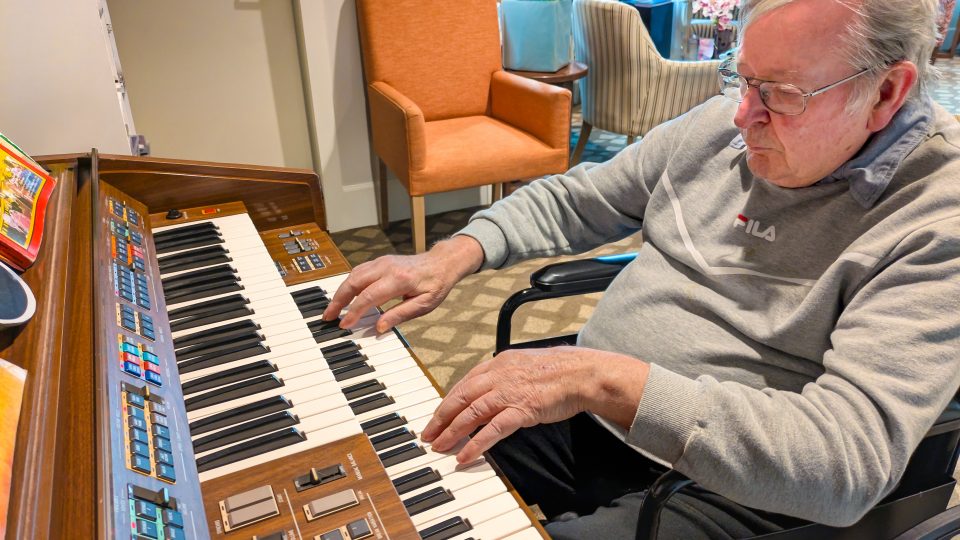As we age, maintaining mobility becomes crucial for preserving independence and overall well-being. Whether you are in your senior years or assisting an elderly loved one, selecting the right mobility device is essential. Here’s a brief overview of some popular options along with some tips for choosing the perfect fit.
Walking sticks (canes)
Walking sticks or canes, are simple aids to provide stability and support while walking. They are ideal for mild balance issues or occasional support.
Features to consider include:
Handle type – there are a variety of handles on offer in the marketplace, including crook, swan neck and derby (see illustration below).
Make sure to choose the handle that best suits you and your mobility needs. Crook handle walking sticks are easy to carry, like an umbrella, whereas swan neck options provide a stronger grip and keeps your weight centred. Derby handles may be better if you are looking for a bit of added support, for example, if you easily become unbalanced while walking.
Material – aluminium canes are light weight and are often height adjustable and foldable. Wooden walking sticks have a more traditional style and feel and may appeal to those who appreciate a more heritage look.
Base – a quad base (as displayed on the swan neck walking stick in the illustration above) provides more stability and security for those who suffer with balance issues. They offer four rubber ends to stabilise the walking stick but may not suit those who regularly climb stairs (as the wide base may not fit onto steps).
Walkers (walking frames)
Walkers provide more stability than canes as they have a larger frame to stabilise movement. If you have moderate mobility challenges and/or are recovering from an injury, a walker may be a better choice for you. Many also come with a built-in seat, allowing seniors to take a moment to rest when needed.
Features to consider include:
Base configuration – choose between standard (four rubber tipped legs), two wheel or four-wheel walkers. A standard walker provides the most stability, but the user must lift the walker to move it, so some arm strength is required. A two wheel base may be appropriate if you have trouble lifting a standard walker. A four-wheel walker may be more appropriate for those wanting a continuous gait, as there is no need to lift the frame. They have hand brakes fitted to the frame, which helps control speed, so some dexterity is required to use them. Four-wheel walkers may be better for those who only need to lightly balance themselves during walking
Foldability – check ease of folding the walker down and back up again for easy storage and transport.
Weight capacity – ensure the walker can support the user’s weight.
Mobility scooters
Electric mobility scooters offer convenience and independence and are perfect for seniors wanting to travel longer distances, particularly outdoors.
Features to consider include:
Safe operation – operating a mobility scooter requires the user to be confident in their ability to safely control the vehicle. This requires a degree of concentration, adequate vision, balance (particularly on sloped surfaces), good hearing to be aware of your surroundings and the ability to get on and off the scooter without too much exertion.
Operating range – the operating range of mobility scooters can vary. Some small scooters can travel up to 20km depending on the model and may be better suited to those who only want to travel short distances, for example, around the local shopping centre. At the opposite end of the scale, heavy duty scooters may operate at distances up to 50km, depending on the model, and may be better suited to rougher terrain. It’s important to think carefully about how you intend to use the mobility scooter and across which surfaces before deciding on a model.
Comfort – check the seat comfort and leg room. Think about your own physical attributes – people who are taller or have a larger frame may require something a bit larger to accommodate their needs.
If you are living in Victoria, you may like to consult VicRoads Guide to Choosing and Using Mobility Scooters and Powered Wheelchairs for more information.
Remember to consult with a healthcare professional or occupational therapist to make an informed decision about the right mobility device for you. The right mobility device depends on your own individual needs, lifestyle and preferences. By taking the time to consult with professionals who have your interests at heart, you can look forward to enhanced mobility and a higher quality of life.
Community news
-

The sandwich generation phenomenon unpacked
Welcome to the first of two blogs on the theme of the sandwich generation in Australia. In this one, we’ll cover the definition of the sandwich generation, the different types of caring that fall within it and some of the issues those in the sandwich generation face. The second blog will cover tips for dealing with life in the sandwich generation
- 02 Jul 2025
-

Wyndham Lodge Choir
Every Tuesday afternoon, residents gather in the sunny music room at Baptcare’s Wyndham Lodge Residential Aged Care community to sing together.
- 25 Jun 2025
-

The Green Team at Moonah Hub
The Sustainability Team, known as ‘The Green Team’, are based at Baptcare Moonah Hub in Hobart and are all about promoting environmentally friendly and sustainable practices in their office, the wider organisation and the local community. We asked Jess Miller, their enthusiastic and determined leader, all about the team and what they do. Read more below!
- 11 Jun 2025

